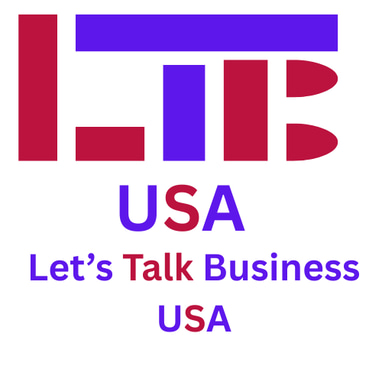What is crowdfunding and what are the most popular platforms?
FINANCE


Crowdfunding has become a very useful alternative to traditional sources of financing for new entrepreneurs. In this article, we explore some of the most popular options.
What is “Crowdfunding” and what are the most popular platforms?
In recent years, many new businesses have turned to alternative investment options to boost their business instead of traditional sources of financing such as commercial lenders and venture capitalists. This approach has proven successful for many, allowing them to raise funds from a broad base of small investments rather than relying on a single large investment.
Crowdfunding is currently very popular, with dozens of alternative online platforms to choose from, which can lead to some confusion when trying to determine which one will be most effective for your company. In this article, we will analyze nine of the most successful platforms for new businesses available online.
How Crowdfunding Platforms Work
In a crowdfunding campaign, a large number of individual investors contribute relatively small amounts of money to fund a new venture. These contributions are typically made through an online platform.
There are many types of crowdfunding campaigns. In some cases, investors contribute altruistically without expecting any return. However, this approach is rare, and most platforms offer investors benefits if the business is successful. Many platforms offer equity crowdfunding, where each investor receives a stake in the business they contribute to.
Companies using equity crowdfunding platforms in the United States must comply with the SEC's crowdfunding regulations.
The most popular alternative is matched crowdfunding, whereby investors receive compensation for their contributions rather than receiving equity. Most new businesses that choose this approach offer investors early access to the company's products or special-edition items as a reward. Therefore, this type of financing often works best for companies that sell a physical product rather than a digital product or service.
What to look for in a crowdfunding platform
You should consider several factors when choosing a crowdfunding platform for your organization, such as:
Your likelihood of fundraising success. How competitive is it? Who is the platform's target audience, and how does it align with your product's target audience? What marketing features and other tools does it offer to help you succeed?
The fees the platform charges and how they would financially impact your business.
Which of the crowdfunding options, whether equity or compensation, might be most effective for your business?
There are platforms specifically geared toward sustainable businesses, artists, or entrepreneurs in certain demographics. If your business falls into one of these categories, you may want to consider one of these platforms.
The platform's ease of use. Is the website intuitive? Do they offer ongoing customer support throughout the fundraising process? Is information about the fundraising process readily available and easy to understand?
The 9 Most Popular Platforms for New Businesses
1. WeFunder
WeFunder was one of the first equity crowdfunding platforms to hit the market and remains one of the most popular options for growing startups. To date, it has raised over US$5 billion.
WeFunder crowdfunds companies in a wide variety of industries. It also has a user base of accredited and non-accredited investors and excellent connections with venture capital organizations like Y Combinator.
The minimum investment on WeFunder is just $100, which helps campaigns attract investors who wouldn't normally consider working with new businesses. Creating a WeFunder campaign requires providing detailed financial information and creating a compelling marketing proposal for investors. For this reason, WeFunder is the best option for companies that already have a product and a following.
The WeFunder team can help you organize your campaign and manage investor relations, even after the funding round is complete. To start raising funds, you'll need to define the terms of your investment and create a contract on the platform. As an equity crowdfunding platform, you'll need a working knowledge of Regulation CF and other financial restrictions to avoid complications later on.
WeFunder doesn't charge upfront fees. Instead, it charges a 7.5% fee if you reach your fundraising goal. This fee covers all of its services, including payment processing.
2. SeedInvest
SeedInvest is a capital crowdfunding platform that has helped a significant number of startups raise funds since its inception in 2012. It's a curated platform, meaning startups must go through a rigorous application process that includes financial verification.
Historically, this platform has only accepted around 2% of applicants, so you'll need a strong product and business model to launch a campaign. They accept businesses from all sectors, but focus on companies with products that have the potential to disrupt existing markets.
Their connections with venture capital firms and angel investors could help your organization continue to grow, even after your first round of funding.
Currently, their minimum contribution for investors is $1,000, a figure higher than many other platforms and therefore attracting more serious investors.
Like many other capital crowdfunding platforms, SeedInvest doesn't charge upfront fees. Instead, it charges a 7.5% commission for successful campaigns.
In general, SeedInvest is the best option for established startups that have achieved some success.
3. Indiegogo
Indiegogo is a platform founded in 2008 and has since launched hundreds of thousands of campaigns. It's available worldwide, and anyone can create a campaign without going through a financial verification process.
Indiegogo investors do not receive equity in the company. It's ideal for new businesses selling physical products.
Once your campaign ends, you can continue promoting your products using the platform's InDemand feature. Indiegogo campaigns are short-term, with a maximum duration of 60 days. The platform charges a 5% commission per campaign, as well as a 3% + $0.20 transaction fee.
Fees are charged for all campaigns, regardless of their success rate.
4. Republic
Republic is another managed equity crowdfunding campaign targeting established startups. They work with both accredited and non-accredited investors, although some campaigns are only available to accredited members.
Companies can set their own minimum investment amount: some campaigns start at $150, while others require $1,000 or more. Republic also promotes investments in real estate, cryptocurrency, and video games to its users, but startups remain the focus.
Because it's a managed platform, not all startups qualify, and the application process is long and tedious. They have a thorough analysis of their products and business model to see how they would perform in a competitive market.
Republic is very selective about the companies it works with, and you'll need to manage SEC filings and other campaign-related legal obligations yourself.
Like most equity crowdfunding platforms, Republic only charges fees for successful campaigns. This is a 6% commission on the funds raised and a 2% commission on the securities issued. Additionally, you'll have to pay payment processing and escrow fees, which represent approximately 2% of your total campaign revenue.
5. Kickstarter
Kickstarter is another of the world's largest matched crowdfunding platforms. It's popular for creative projects like movies and music, but it's also popular for product development campaigns. This means it could be a good option for startups selling a specific physical product.
It allows anyone to launch a campaign without having to share their company's financial information. Once your application is accepted, the campaign will run for 60 days or less. If you reach your fundraising goal within that time, you will be responsible for providing the match. Likewise, if you don't reach it, you won't receive the funds.
Like many other crowdfunding platforms, Kickstarter only charges fees if your campaign is successful. The platform fee is 5%, plus payment processing fees of $3 + $0.20 per investment.
6.Fundable
Fundable is a crowdfunding platform that focuses on direct customer service for growing new businesses. The company's founders are experienced in this process, so they set out to create an intuitive platform.
Their team helps each new business create a profile and marketing materials, and offers ongoing support throughout the process.
This platform is also unique in that it offers both equity and compensation crowdfunding.
Fundable's fee structure works differently than many other crowdfunding platforms. Instead of charging a percentage fee on the funds raised, they charge a monthly fee of $179 for all campaigns, regardless of whether they are successful or not.
Reward campaigns are also subject to payment processing fees of 3.5% + $0.30 per transaction.
8. StartEngine
StartEngine is a popular equity crowdfunding platform that hosts hundreds of startup campaigns across a wide variety of industries, including technology, finance, travel, food, healthcare, education, and many more.
Campaigns on the platform must reach a minimum funding goal of US$10,000. StartEngine offers Reg CF or Reg A+ campaigns, which require legal advice to launch.
The platform charges a flat fee per successful campaign, though the exact amount varies depending on the type of campaign you choose and other factors. Campaign fees start around 7%.
It's a unique platform because it offers a secondary market where investors can buy and sell shares in private companies after your campaign ends.
8. MicroVentures
MicroVentures is a highly respected equity crowdfunding platform that has worked with some of the most prominent startups of the last decade. Its portfolio of past campaigns includes Uber, Slack, Airbnb, and many other well-known startups.
MicroVentures is extremely selective about the companies it works with. They conduct a thorough evaluation of your business to see if it aligns with their platform guidelines.
The platform focuses on companies that provide an innovative twist on existing technology or have a unique concept that has not yet been commercialized.
Although it is quite difficult to get listed on this platform, the potential for profitability is very high.
It is important to note that legal review and filing fees must be paid upfront. The platform also charges a 5% commission, a 2% equity fee, and an escrow fee of $1,000 or 0.35%, whichever is greater.
9. IfundWomen
IFundWomen is the leading crowdfunding platform with compensation for female entrepreneurs.
Unlike many other platforms on this list, crowdfunding is only a small part of what IFundWomen offers. It also offers a variety of resources and support services for female entrepreneurs.
When you launch your campaign, you'll have access to a library of guides, courses, and networking opportunities to help you achieve success.
Unlike many other platforms of its kind, iFundWomen allows you to keep the money you raise, even if you don't reach your total goal.
They accept various types of new businesses at different stages of development and charge a 5% commission.
Summary
With so many crowdfunding platforms available, every startup has its own path to success. If traditional venture capital funding or lending platforms aren't an option for you, crowdfunding can be an effective way to boost your business.
Given that crowdfunding campaigns can be very competitive, you'll want to make sure your finances are in order and that you have solid marketing materials before you begin.
